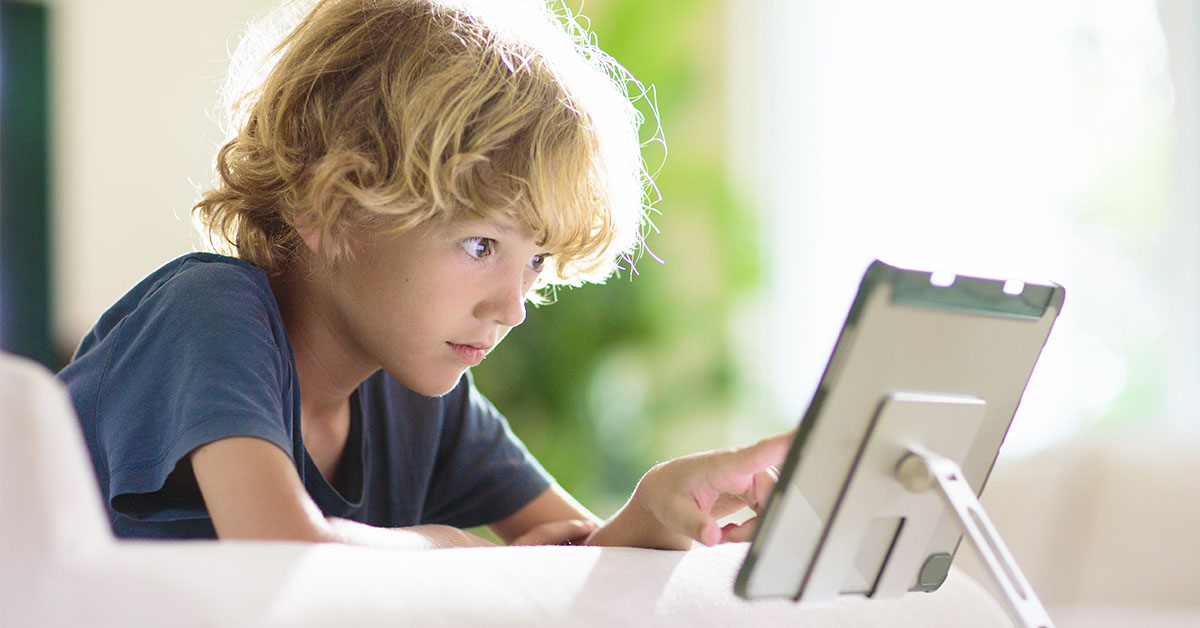In our increasingly digital world, it’s common for parents to turn to tablets and screens as a quick and easy way to soothe and distract their children. Whether during long car rides, bouts of boredom, getting them to sit still in a restaurant, or moments when parents just need a break – handing over a device can feel like the go-to solution. However, recent research reveals that relying on screens for calming young children may have unintended emotional consequences – particularly increasing frustration and anger over time.
The Link Between Tablet Use and Anger in Young Children
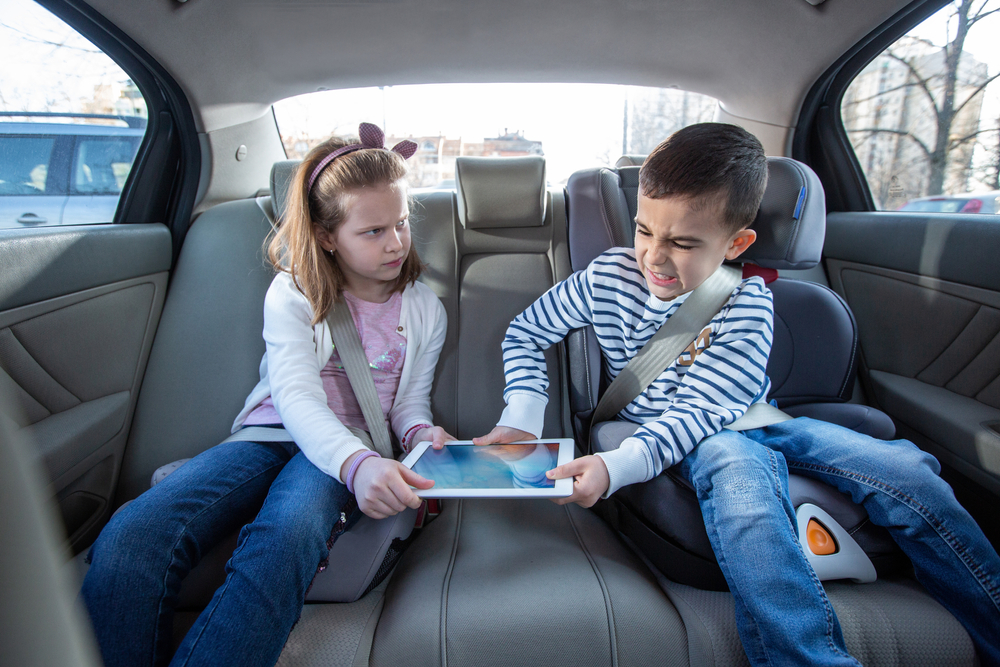
A study published in JAMA Pediatrics in 2024 found a concerning bidirectional relationship between early tablet use and emotional outbursts. Researchers surveyed 315 parents of preschoolers from Nova Scotia, Canada, tracking tablet use and children’s emotional behaviors at ages 3.5, 4.5, and 5.5 years. The study found that tablet use at 3.5 years old was associated with increased anger and frustration at 4.5 years old. Conversely, children showing more anger and frustration at 5.5 years old were more likely to use tablets more frequently at 5.5 years old. This cycle suggests that tablets used to soothe children might, paradoxically, contribute to worsening emotional regulation over time. Dr. Leana Wen, an emergency physician, wellness expert, and mother of two, explained to CNN that children need to learn how to manage their negative emotions naturally as a critical part of childhood development.
“children need to learn to deal with their own negative emotions themselves. They need to go through the process as part of their childhood development, aided by their parents, caregivers and teachers,” she explained. “If, instead, they are given a tablet, computer or smartphone in an effort to soothe them, they won’t learn to manage these emotions themselves. This could result in problems later in childhood and adulthood, including with anger management.”
Why Screens Don’t Soothe Like Real Social Interaction
Screens can be tempting as “digital pacifiers,” but they replace the essential face-to-face interaction and social engagement through which children develop emotional and social skills. Passive screen time – whether playing apps, watching shows, or scrolling social media – removes opportunities to practice coping strategies, express feelings verbally, and gain empathy through real relationships. The COVID-19 pandemic context of the study also highlighted how heightened stress and disruptions may have exacerbated screen reliance and emotional challenges.
The Danger of Habitual Screen Soothing in Various Situations
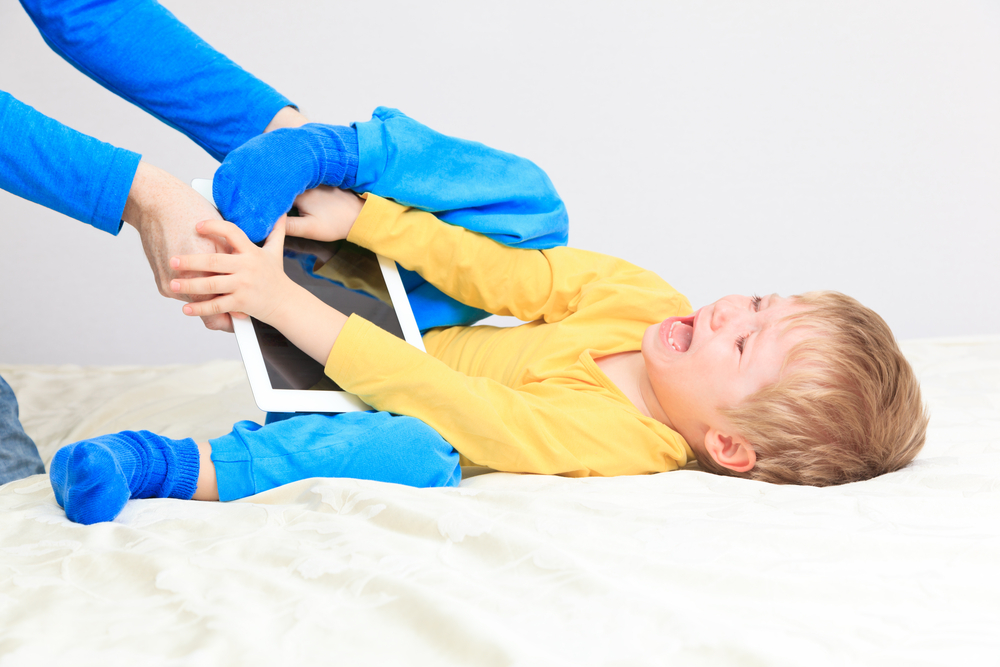
Being a parent is hard and there are many situations in which it can be difficult. You love your children, but they can be a lot. It always seems in the situations where you need them to be calm, patient, and well-behaved, that they are noisy, rambunctious, act out, and are just generally unruly. It is often in these situations that parents will turn to screens as a way to keep their children quiet, not fighting, and not disturbing others. These are situations such as:
- Long car rides or flights
- When children are bored at home or out in public
- When parents are tired, stressed, or need a moment to focus (for example, during working hours or virtual meetings)
- During medical treatments
- Any situation that requires patient waiting – the doctor’s office, the bus stop, at a restaurant, etc.
While these moments can be challenging, frequent screen use as a default “soothing” method may train children to expect digital distraction rather than learning to self-regulate. They don’t learn how to entertain themselves, how to manage feelings of frustration when they are bored, how to conduct themselves in public settings, and in general become angrier because of this frustration. On top of that, the more reliant they become on screens, the angrier they become when you tell them it’s time to turn them off.
How to Break the Habit: Practical Tips for Parents
The best thing to do is to be completely screen-free for the first few years of a child’s life, ideally, as long as possible. If the screen habit has already begun, however, don’t beat yourself up about it: You’re a busy parent who’s just trying to do your best. Thankfully, if you wish to break the screen habit, there are actionable strategies you can implement in all settings to reduce screen dependence and promote healthier emotional development.
1. Set Clear, Consistent Limits on Screen Time
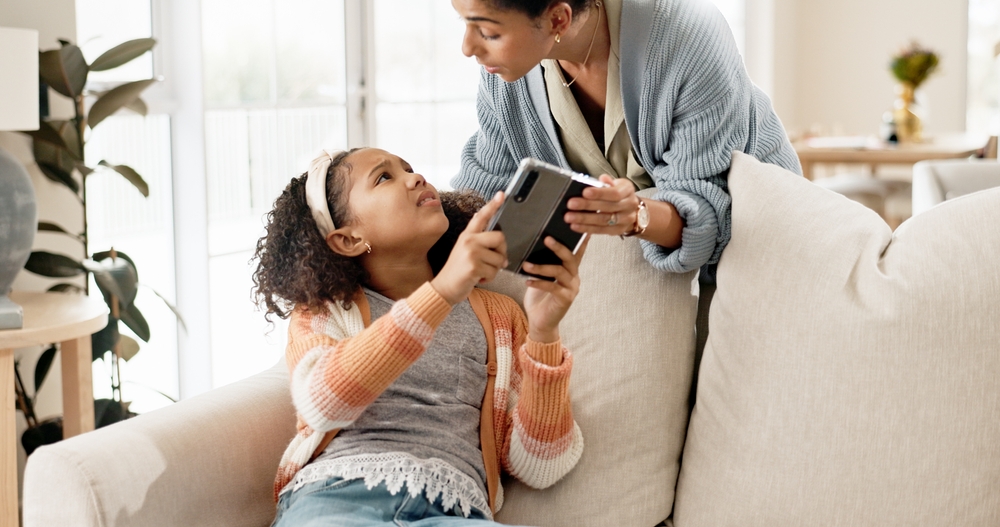
Define specific times and durations for screen use. For example, one hour on weekends and limited use during weekdays for special occasions. Avoid screens as a first response to tantrums, fussiness, or cries of “Dad/mom, I’m bored!”. Establish device-free zones and times. These can include mealtimes, bedrooms, and classrooms. Finally, you must lead by example. If your kids see you on your phone all the time (outside of work obligations) while you’re telling them they can’t be on them, you will come up against a wall. Minimize your own screen use around your children as much as you can.
2. Offer Alternative Soothing and Engagement Strategies

Use comfort items like blankets, stuffed animals, or pacifiers for toddlers. You can distract with interactive activities instead, such as storytelling, songs, simple games, or sensory play. Encourage as much physical movement and outdoor time as possible – even small walks or stretches can help. Finally, do calming techniques with your child when they’re having a moment. This can be things like deep breathing or gentle rocking. Your doing these things with them will inadvertently teach them how to soothe themselves as they get older.
3. Prepare for Situations Commonly Tempting for Screens
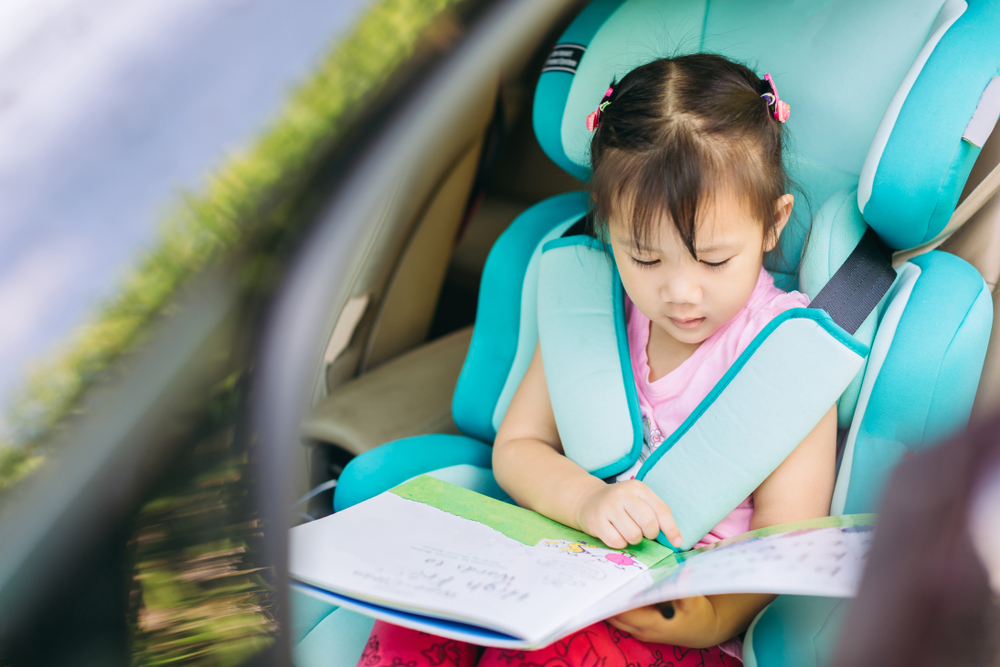
Being prepared is half the battle. For long trips, bring non-screen activities like books, coloring supplies, puzzles, or audiobooks. When your kids are bored, have a variety of creative play options that are easy to access. Also, it is okay if your kids are bored – this forces them to be creative and also learn how to manage the moments when life just isn’t that exciting. Finally, when you are feeling overwhelmed and just need a break, use every tool you’ve got. You can set up supervised playdates, ask family for help, and create spaces for your children to go when mom or dad needs quiet time. Think soft music, a cozy quiet corner with books, toys, and games that they can play on their own while you take some well-deserved moments to yourself.
4. Communicate and Model Emotional Regulation
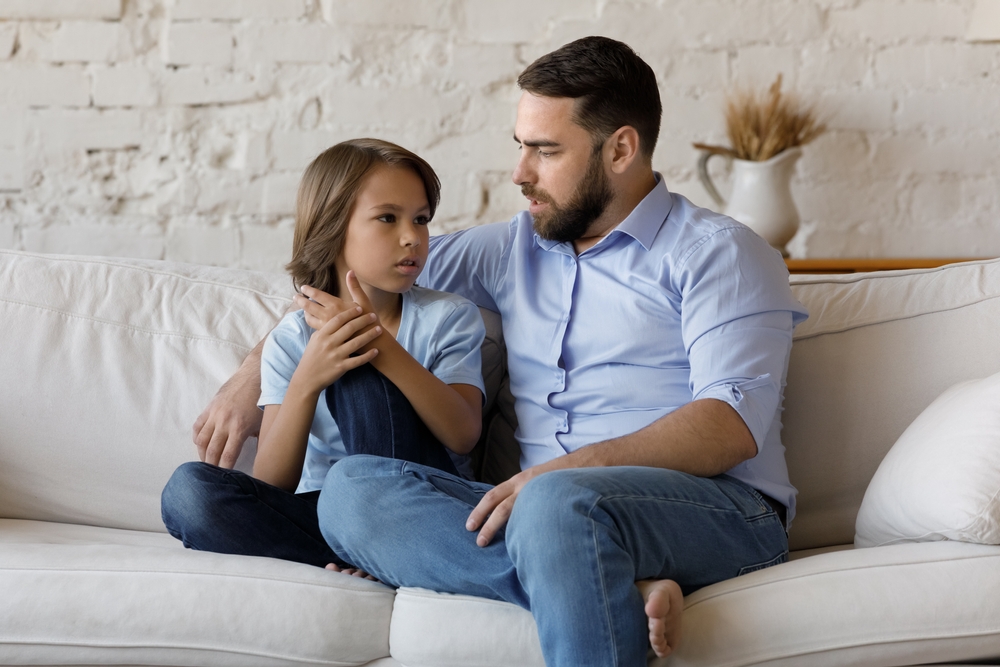
Kids won’t just learn how to manage their emotions on their own – they need to be taught. Talk openly with your children about feelings and ways to cope with frustration. Help your kids name their emotions and practice calm responses. It is important that your children understand that all emotions are valid, however, all actions or behaviors are not. For example, it is okay to feel frustrated, but it is not okay to hit, lash out, or be mean to those around them because of it. Then, give them tools for how to deal with that emotion that they can use the next time they feel that way.
5. When Screens Are Used, Use Them Mindfully

Choose high-quality educational apps and content that are calming and slow-paced. Limit passive screen time, instead prioritizing active, interactive screen experiences. As much as possible, don’t leave your children to use screens by themselves, especially at a young age. Instead, combine screen time with face-to-face interaction whenever possible. For example, watching a show and discussing it together.
When to Seek Professional Guidance
If tantrums or anger episodes are frequent, intense, or persist despite efforts to reduce screen time, seek professional help. This can include consulting with a pediatrician or even a child development specialist for support and evaluation. There is no shame in getting help – it is your child’s emotional development and future that are the most important.
Screens Are Tools, Not Pacifiers

Tablets and screens can have a place in children’s lives, especially for learning and occasional entertainment. They should not, however, substitute for real-world interaction or emotional skill-building. By setting thoughtful boundaries, offering alternative activities, and supporting children’s emotional growth, parents can help their kids develop healthy coping strategies. From here, they can break the cycle of screen dependence and anger, leading to happier, more well-adjusted children.
Read More: Study Finds Connection Between Screen Time and Mental Health in Kids Under 10
